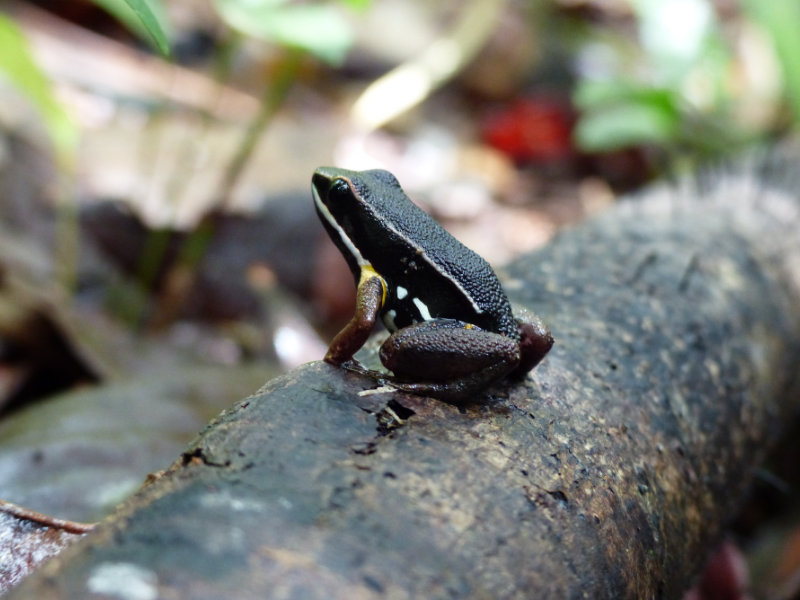Behavioral research
Poison dart frogs: Personality determines reproductive strategies
Poison dart frogs successfully reproduce with different strategies depending on whether they are bold, aggressive or explorative. This is shown by new research results from the University of Bern.

Poison frogs of the species Allobates femoralis are not poisonous. Like many other animal species, however, they have distinct personality traits. Both the males and females, for example, may be particularly bold, aggressive, or eager to explore.
In two recently published studies, researchers in the Institute of Ecology and Evolution at the University of Bern have presented new results on the effects of different combinations of personality traits in both males and females on different components of reproductive success.
The research group led by Eva Ringler, Professor and head of the Division of Behavioral Ecology in the Institute of Ecology and Evolution at the University of Bern, studied a wild population of poison frogs on a river island in French Guiana and also conducted behavioral experiments with frogs in the captive colony at the Hasli Ethological Research Station of the University of Bern.
No single behavioural type promises success in every case
The researchers concluded that the personality traits boldness, aggression and exploration can have advantages or disadvantages for different components of reproductive success in both males and females, depending on the context. “There is no one behavioural type that generally promises success and prevails. It depends on the context,” explains Eva Ringler.
Example: The males which could attract several females as mates were either non-aggressive and non-exploratory, or very aggressive and exploratory. “Males with low levels of aggression are probably less competitive against more aggressive conspecifics. That’s why it is advantageous for them to stay protected in their own territory and wait there for female mating partners,” explains Mélissa Peignier, the first author of the study. “More aggressive males that don’t go exploring and stay in their own territory may have the problem of being unable to distinguish potential mates from rivals. Attacking an approaching female in one’s own territory obviously isn’t conducive to mating success,” says Peignier.